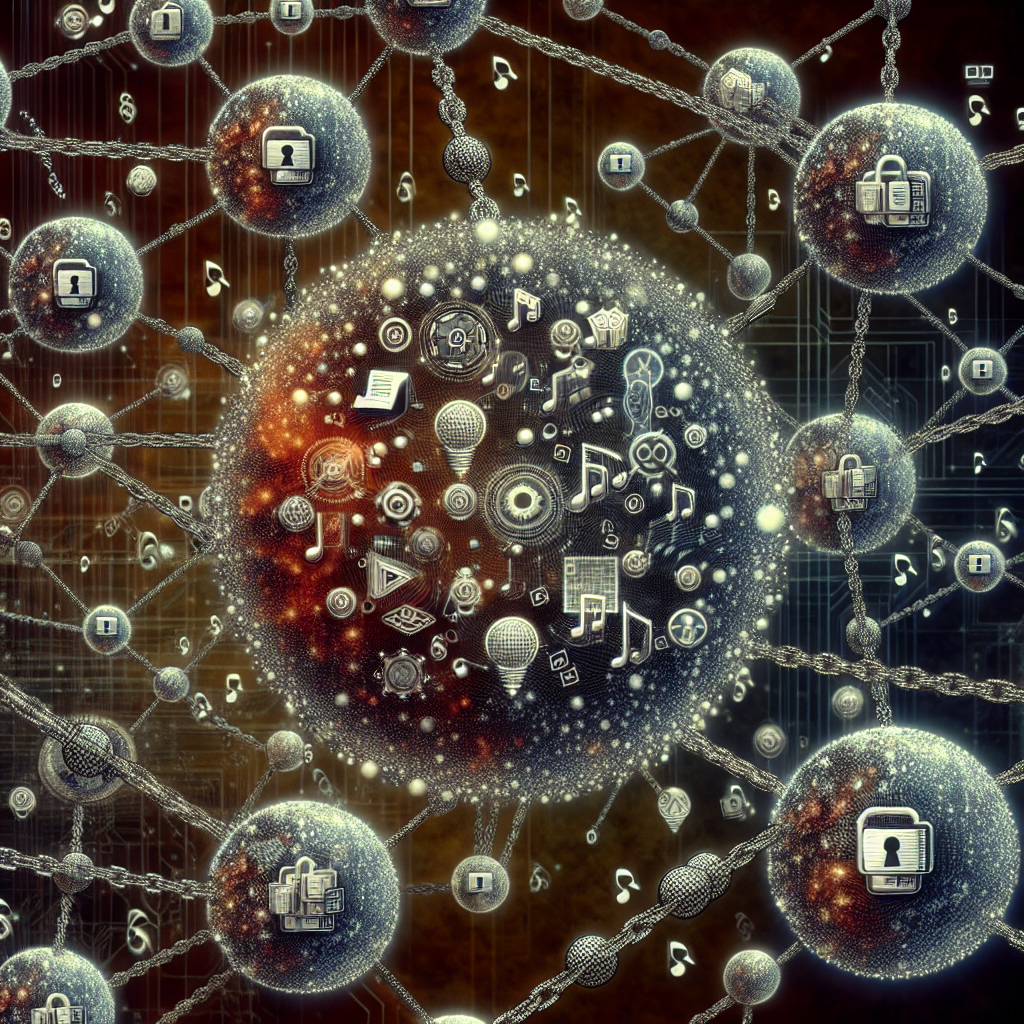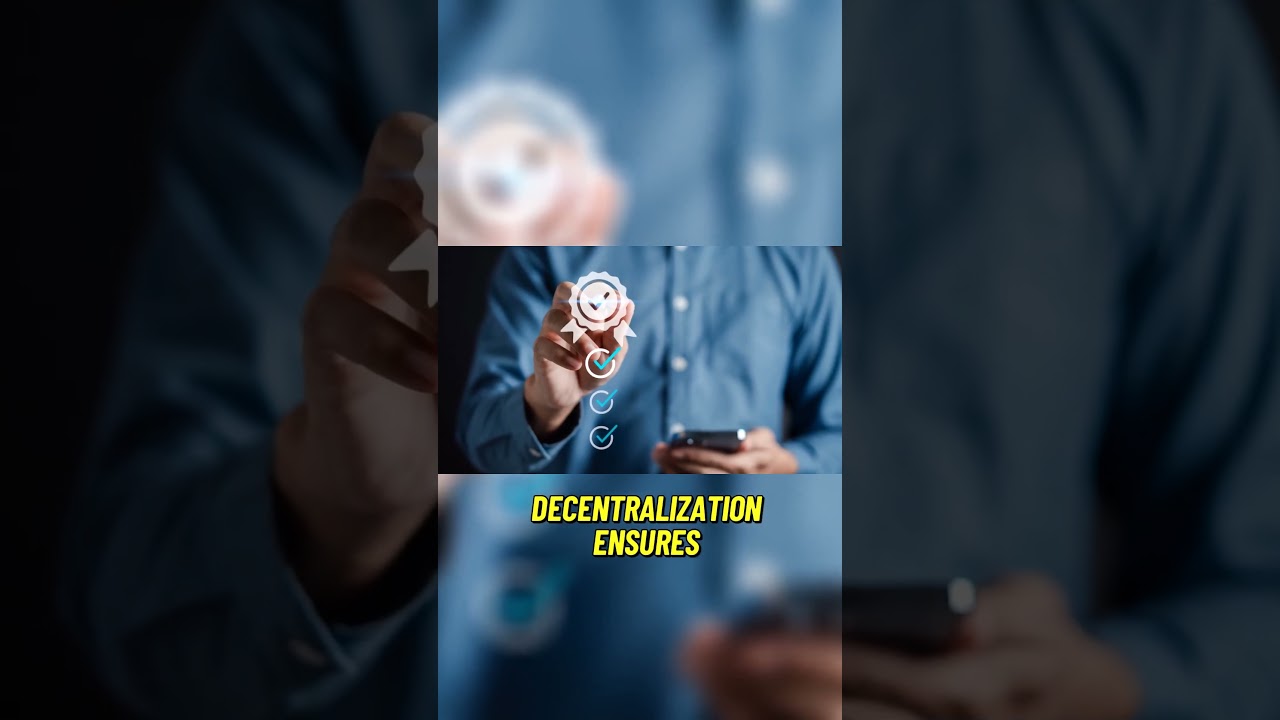In our digital world, many people create things like music, videos, and art. But sometimes, it can be hard to prove who owns these creations. This is where blockchain technology comes in. Blockchain is like a giant, special notebook that keeps track of who created what and when. This helps protect the rights of creators and makes digital content copyrights more secure.
When someone creates something, they can use blockchain to write their name down in this special notebook. This way, there is a clear record that shows they are the original creator. If someone tries to steal their work, the creator can easily prove that it is theirs using the information saved on the blockchain.
Another important term is “smart contracts.” These are like automatic rules that can help manage how digital content is shared or sold. For example, if a musician wants to sell a song, a smart contract can ensure that they get paid every time someone listens to it. This makes it fair for the creator and helps them earn money for their hard work.
Overall, blockchain technology is changing the way we think about ownership and rights in the digital world. By using this technology, artists can feel safer knowing that their creations are protected.
Blockchain Explained: Why It’s More Than Just Cryptocurrency
Glossary:
1. Blockchain: A secure digital ledger that keeps track of ownership and transactions.
2. Copyright: The legal right of someone to control how their creative work is used.
3. Digital Content: Any creative work that is made and shared online, such as music, videos, or art.
4. Smart Contracts: Automated agreements that execute when certain conditions are met, often used on blockchain.
Understanding Digital Content Copyrights
Digital content refers to any content that exists in a digital format, such as music, videos, e-books, images, and software. Copyrights are legal rights that grant the creator of original work exclusive control over its use and distribution.
The Problem of Copyright Infringement
With the rise of the internet, protecting digital content has become increasingly complex. Copyright infringement occurs when someone uses, reproduces, or distributes copyrighted work without permission from the copyright owner. This is a significant issue for creators, as they often lose potential income due to unauthorized use of their work.
How Blockchain Technology Can Help
Blockchain technology is a decentralized digital ledger that records transactions across many computers. It provides a secure and transparent way to store information. Here’s how it can make digital content copyrights more secure:
- Immutable Records: Once data is entered into a blockchain, it cannot be changed or deleted. This creates a permanent record of ownership.
- Decentralization: Unlike traditional databases, blockchain is distributed across multiple nodes, reducing the risk of data loss and unauthorized alterations.
- Smart Contracts: These are self-executing contracts with the agreement directly written into code. They automatically enforce the terms of usage for digital content, ensuring that creators are compensated fairly.
- Transparent Attribution: Blockchain allows for easy tracking of who created the content and when it was created, making it simple to prove ownership.
Real-World Applications
Several platforms are already using blockchain to protect digital copyrights. For instance, platforms like Audius allow artists to share their music while retaining control over their copyrights. According to a report, “Blockchain technology has immense potential to streamline and secure the way artists manage their intellectual property.”
| Audius | Decentralized music streaming platform where artists have control over their content. |
| Ascribe | Platform that helps creators register, license, and sell digital art on the blockchain. |
Challenges Ahead
Despite its potential, the implementation of blockchain in copyright protection faces challenges:
- Scalability: Blockchain networks need to handle a large amount of data as digital content grows.
- Legal Recognition: The legal systems in many countries are still catching up with technology, leading to uncertainties around enforcement.
- User Adoption: Creators and consumers need to understand and trust blockchain technology.
What the Experts Say
“The intersection of blockchain technology and copyright law holds great promise for artists and creators alike, ensuring they are compensated for their work.”
By tackling these challenges, blockchain technology can significantly enhance the security of digital content copyrights, providing a fairer landscape for creators and consumers in the digital age.
What is blockchain technology?
Blockchain technology is a decentralized digital ledger system that securely records transactions across multiple computers. It allows for the transparent and tamper-proof documentation of data, making it ideal for securing copyrights in digital content.
How does blockchain improve copyright security for digital content?
Blockchain enhances copyright security by providing a permanent and unalterable record of ownership. Every time a piece of digital content is created, its details can be recorded on the blockchain, including the creator’s identity, creation date, and any changes to the content. This ensures clear proof of ownership and helps prevent unauthorized use.
Can blockchain help with tracking usage of digital content?
Yes, blockchain can facilitate the tracking of digital content usage. It enables creators to monitor how their work is being distributed and used over time, potentially leading to better enforcement of copyright agreements and fair compensation for the use of their content.
What are smart contracts and how do they relate to copyrights?
Smart contracts are self-executing contracts with the terms of the agreement directly written into code. In the context of copyrights, they can automate licensing agreements and ensure that payments are made automatically whenever content is used. This reduces the administrative burden on creators and helps ensure that they receive payment promptly.
Are there any challenges to using blockchain for copyright management?
Yes, while blockchain offers numerous benefits, there are challenges. These include regulatory hurdles, the need for widespread adoption, and the potential complexity of implementing blockchain solutions. Additionally, there is a concern about the permanence of data—once something is recorded, it cannot be easily changed, which may lead to issues if errors occur.
Is blockchain technology expensive to implement for copyright management?
The costs of implementing blockchain for copyright management can vary. While initial setup and integration may require significant investment, the long-term benefits—such as reduced administrative costs and increased security—can outweigh these costs. Over time, as blockchain technology becomes more common, implementation prices may decrease.
Will blockchain eliminate copyright infringement?
While blockchain can significantly enhance the security and tracking of copyrights, it cannot completely eliminate copyright infringement. It acts as a deterrent and provides a means to enforce rights more effectively, but education and awareness about copyright issues are also essential to reduce infringement.
How can creators start using blockchain for their digital content?
Creators can start by researching blockchain platforms that specialize in copyright management and digital content. Many platforms offer user-friendly tools for registering and managing digital rights. Moreover, understanding the basics of blockchain technology will help creators make informed decisions about which solutions best meet their needs.




